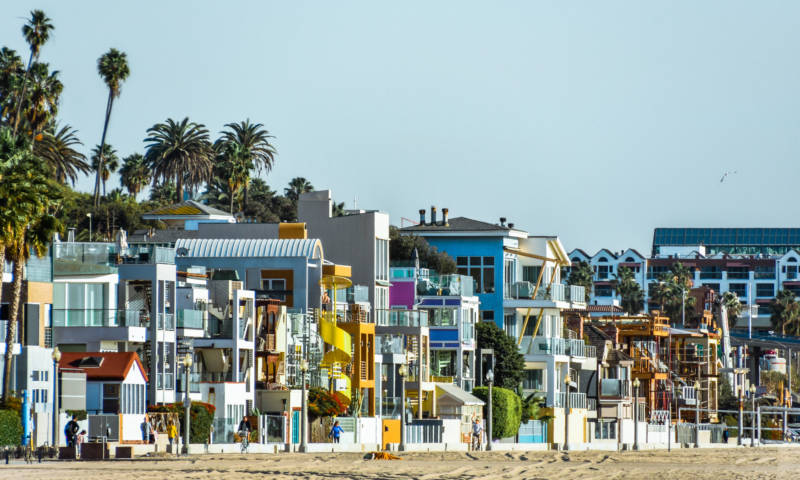If you search short-term rental sites like Airbnb, HomeAway and VRBO, you’d be hard-pressed to find a city in California that doesn’t have at least one room for rent. But read through the municipal codes and you’ll see a different story.
While some locales have moved to make a legal pathway for more short-term rentals to operate, others, like South Lake Tahoe, have voted to ban them almost entirely.
The tumultuous state of regulations is apparent in four of the state’s biggest tourism magnets: San Francisco, Santa Monica, South Lake Tahoe and Palm Springs. Each has worked to regulate short-term rentals in different ways, contributing to the patchwork of legislation we now see across the state.
Hanging in the balance is the ever-present question over whether to regulate short-term rentals more strictly in an effort to preserve local culture, or allow them to thrive and reap the tax revenue as a result.
Santa Monica: Trying to Strike a Balance
Santa Monica passed its first home-sharing ordinance in 2015. As a city of 70 percent renters, it needed to protect local housing stock while also allowing residents to take advantage of new economic opportunities through home-sharing.
Constance Farrell, public information officer for Santa Monica, said, “We wanted to strike a balance, not turning neighborhoods into de facto hotels. But we also recognized that we have residents that want to host people from around the world, and so we created a legal pathway to do that.”
Today, Santa Monica allows residents to rent out rooms in their homes for a period of 30 days or less. Renting out an entire home remains illegal. In 2016, Airbnb and HomeAway filed a lawsuit against the city to stop the home-sharing ordinance from taking effect, but in 2018 the U.S. District Court for the Central District of California ruled in favor of Santa Monica on the issue.
S.F.: Friendlier Than Most to Short-Term Rentals
San Francisco, for its part, didn’t start regulating short-term rentals until 2015. Up until then, short-term rentals were technically illegal, but the city didn’t enforce this until around 2011.
“On the macro level, it’s about housing supply and housing affordability, and then on the neighborhood level, it’s about making sure there’s regulations to help ensure quality of life for residents,” said Kevin Guy, director of the San Francisco Office of Short-Term Rentals.

